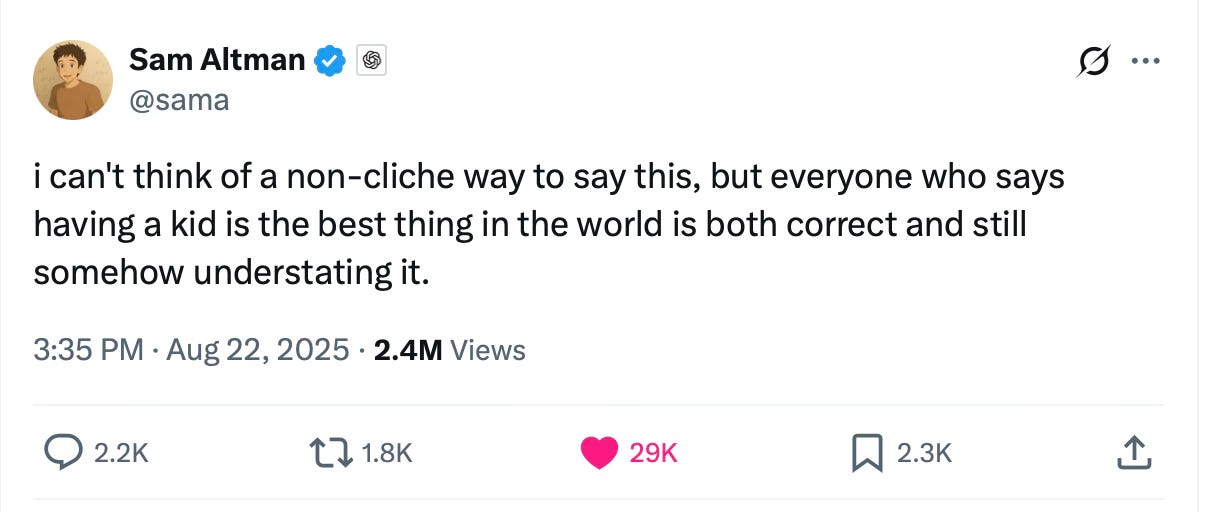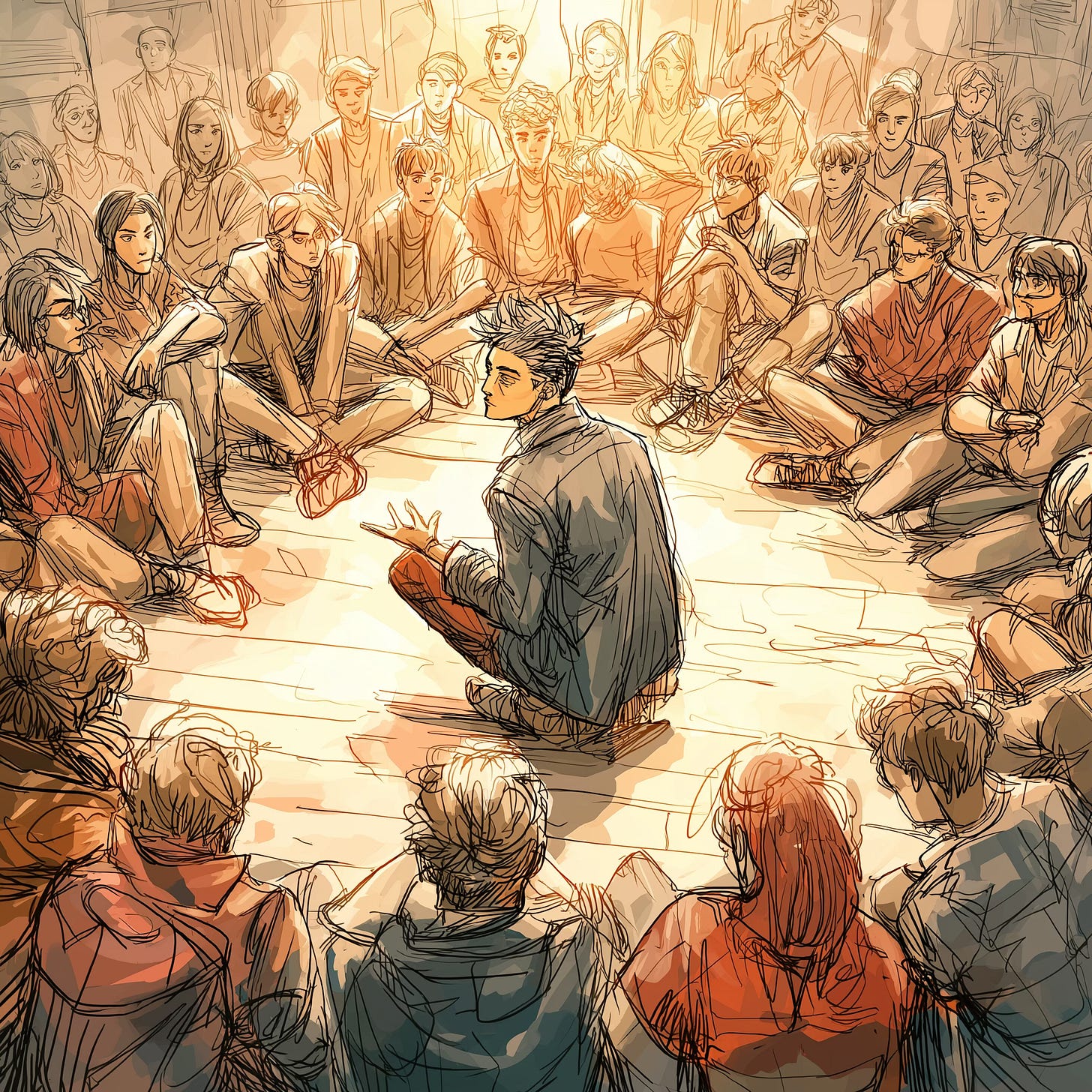Getting Back in the Game of Existence
From dating apps to demographic decline, the stakes have never been higher
The Best Thing in the World, Understated
Sam Altman recently wrote, “everyone who says having a kid is the best thing in the world is both correct and still somehow understating it.” That’s not exactly a hot take—it’s been said a thousand times in every baby shower toast—but the fact that someone whose daily work involves reshaping the future of intelligence paused to say it out loud matters. We need more voices, especially from unexpected places, reminding us that the most disruptive innovation isn’t machine learning, but human learning—the kind that starts when a child opens their eyes and parents realize they’ll never look at the world the same way again.
And yet, even as many nod in agreement, the math doesn’t add up. Fertility rates are at historic lows, marriage is slipping off the cultural agenda, and our species is quietly entering a self-authored population decline. The paradox is glaring: the thing most people who experience it say is indescribably meaningful is the very thing more and more are opting out of.
Swiping Through the Void
That brings us to Raya. The Wall Street Journal describes the platform as “Illuminati Tinder”—velvet-roped, hush-hush, where celebrities, DJs, and entrepreneurs curate slideshows set to their favorite songs . It’s quirky, selective, and—unlike the endless swipe mills—thriving. More than 2.5 million people are on the waitlist . Will Raya succeed long term? It almost doesn’t matter. What matters is that at least someone is trying something different.
Because the truth is, for all the billions poured into online dating, most platforms have simply industrialized loneliness. The Fight Club-style rule of Raya—“don’t talk about Raya”—was clever marketing. But perhaps it’s time to break that silence. If we keep treating the search for connection as just another feed to scroll through, we risk swiping our way into demographic oblivion.
Talking About Raya, Talking About Us
Here’s the pivot: this isn’t about whether Raya, or Hinge, or whatever comes next can “fix” love. Apps are just tools. The real crisis is whether we, collectively, still believe in love, family, and the act of creating future generations. The data is sobering. We’re running an experiment where fewer people get married, more people live alone, and birth rates tumble below replacement. The endgame isn’t theoretical—it’s an emptying classroom, a shuttered town, a civilization growing old without anyone to remember it.
So maybe the job now is to start saying the quiet part out loud. Yes, it’s awkward. Yes, it risks sounding cliché. But if Sam Altman is right—that even the cliché undersells the experience—then silence is the bigger mistake. Call it existential marketing: reminding ourselves, in public, that the most meaningful innovation is not another app, but choosing each other, building families, and getting back in the game of existence.
For further reading on this topic, take a detour to The Future of Happily Ever After and Happily Ever After… Updated.






